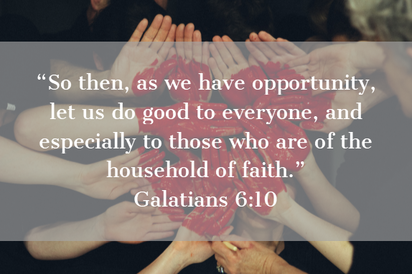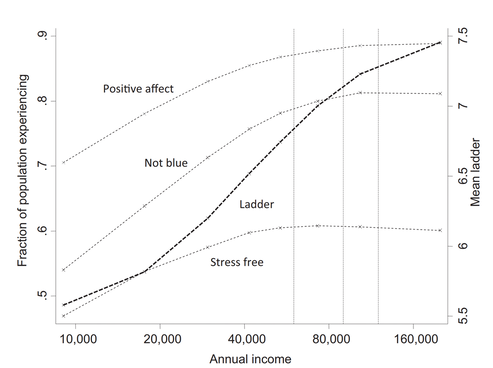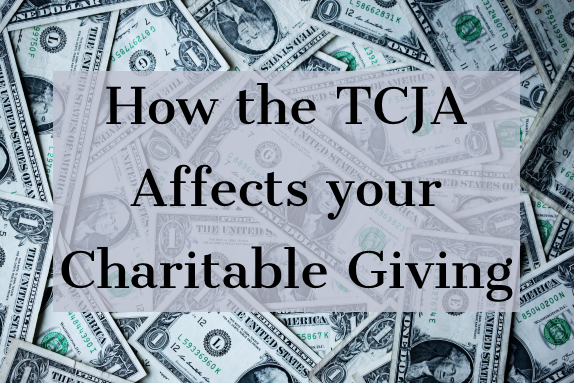 Radical Generosity: A lifestyle characterized by selfless giving of time, energy, and resources birthed out of the natural response to the love and generosity of Christ. If you haven’t done so already, I would suggest reading the previous post, “Biblical Generosity – Part One.” In it, we lay a foundation for the motives, purposes, and beauty of radical generosity. This post provides practical examples of what it might look like to live a radically generous life and walk in obedience to God’s call for us to deny ourselves and follow Him. Most people associate Christian giving as a 10% tithe to the church or setting aside a section of the budget to donate to those in need. However, true generosity has nothing to do with a number and everything to do with offering 100% of our lives as a “living sacrifice” in response to Jesus’ generosity toward us. His generosity was total. Complete. Perfected. Therefore, our generosity is an outworking of the knowledge that He gave more than we could ever give, and everything we have to give is not our own, to begin with.  Consider your heart Understanding and discerning your beliefs and feelings regarding money can be difficult. A first step toward establishing a generous life is assessing where your heart currently stands on the issue. Here is a link to a quick quiz from the book “God and Money” by John Cortines and Gregory Baumer (1). How do you score? Is your natural reaction to save as much as possible in order to make life easier for you and your family down the road? Do you tend to spend now and enjoy the material blessings God has provided you? Do you find yourself excited about using your money to care for others? Spend some time reflecting on the desires of your heart regarding money and how the Lord may be calling you to faithful obedience in this area. Ask yourself why When making a financial decision, big or small, make a habit of asking yourself why you made that decision. This simple step will force you to voice your financial beliefs and priorities to yourself. Through this, God may reveal blind spots in your awareness of motives and desires behind your decisions. For example, you write a check to the IRS during tax season and ask “why.” You realize that God commands you to pay taxes, and now, paying your taxes is in obedience to Christ. “Therefore render to Caesar the things that are Caesar's, and to God the things that are God's.” Matthew 22:21b Or asking, “Why am I adding an additional payment to my mortgage?” The answer could be “to get out of debt sooner,” or it may be, “Because I think it’s a better investment than the stock market,” or a multitude of other things. The answer that we find ourselves giving will reveal our heart and help bring us into a habit of wise decision making. Give away more than just your money Our generosity should not only consist of giving money. God calls us to give our time, money, efforts, gifts, etc. The things we find difficult to give away reveal to us where we are treasuring things more than Christ. In other words, not only is generosity a way to demonstrate the Gospel to the world, it is also a method the Lord uses to teach us to let go of the things we hold with a tight fist. He gently nudges us to give away what we are most inclined to hold close because He knows our greatest good is found in being satisfied in Him alone. Make it a point to pay attention to the things you talk about the most, spend the most money on, and delegate the most time to. These areas are your opportunities for growth in giving. This kind of giving is uncomfortable because it requires faith that Christ will sustain and provide. However, it leads to abundant life and is infinitely worth it. What if you don’t feel like giving? A discipleship group I was a part of in college asked an important question. “If forced behavior isn’t valuable in the Kingdom of God and actions should flow from the motives of the heart, should we force the right behaviors until our heart is in it?” For example, God commands us to read and study His Word. If our heart is not in it, should we continue spending time in the Word until our hearts respond? If we feel disengaged with church and don’t want to tithe, should we continue tithing even though our heart is not in it? The Bible seems to suggest that faithful obedience and discipline usually come first. Our hearts and passions tend to follow. The same goes for radical generosity. It is natural in our materialistic and individualistic culture that this lifestyle makes us feel uncomfortable and even vulnerable. Generosity is formed in us slowly through deliberate small choices. If it is so difficult and counter-cultural, why should we pursue it? First, it is a call on our lives as believers. The early church drew many of its converts through their simple sharing and generosity. Generosity is powerful for the sake of the Gospel. Second, we are promised joy in giving. Many find that a year of disciplined, generous giving eventually produces a heart that genuinely loves to give. The initial stress we feel gives way to tremendous joy and unshakeable trust in God’s promises. What if you don’t have enough to give? Our culture places value on numbers, the bigger the better. We may feel that our ability to contribute is too small to make a difference. However, Jesus turns that philosophy on its head in the parable of the poor widow. A heart bent toward generosity always has something to give, no matter how little. “And a poor widow came and put in two small copper coins, which make a penny. And he called his disciples to him and said to them, “Truly, I say to you, this poor widow has put in more than all those who are contributing to the offering box. For they all contributed out of their abundance, but she out of her poverty has put in everything she had, all she had to live on.” Mark 12:42-44 “Every man shall give as he is able, according to the blessing of the Lord your God that he has given you.” Deuteronomy 16:17 Lifestyle Creep Lifestyle creep refers to the tendency for our income and expenses to increase in proportion to each other. In other words, our standard of living increases with our salary bumps and raises. With each increase, expenses that used to be “discretionary” become “necessities” to us. You may wonder how you survived on the salary you made in your 20s. As your lifestyle “crept” upward, your expectations followed, and now, you are unable to live on less. What if we could change our “lifestyle creep” to “generosity creep?” What if we couldn’t help but give more away as our income increased? In the book, God and Money, Cortines and Baumer suggests setting a “finish-line” for your expenses, and every dollar earned after that amount is to be given away. What income is the “finish-line?” A study done by Angus Deaton and Daniel Kahneman with Princeton University (2) found an possible “secular” answer to this by researching the correlation between money and happiness. They found that the happiness and utility associated with income increased up to the $75,000 income mark. They found the marginal happiness gained from each dollar after that was significantly diminished. This number does not account for inflation, or cost of living. A hard and fast rule, although simple, cannot be applied here. Prayer and searching the Word of God is necessary to discern your specific threshold or the method in which God is calling you to give. Understanding lifestyle creep and devising a plan to prevent it is important when pursuing radical generosity. Non-Deductible Giving Typically, financial giving is incentivized through tax benefits, but recent changes in the tax-law made it much harder to benefit from charitable giving deductions. Should we prioritize tax-deductible organizations in our giving? After all, it does free up more money (in the form of a reduction to your tax liability) that you could then give away. It may be wise to use these tax deductions to further your giving. However, this decision must also be balanced with giving to organizations that manage funds responsibly and pursue a mission you are passionate about funding. We must also consider the value of giving to individuals in our community as well as organizations. The Bible places a high priority on giving to those in need, especially in the body of Christ. Seeing a need in your personal community and meeting that need allows us to see the first-hand impact of our generosity. Where are you giving? There are many non-profits, foundations, groups, churches, and people that you could be giving your time and resources to, and it can be overwhelming to discern where to give. This decision may be one of personal preference and conviction. Jesus didn’t say, “Give to the dog shelter over the soup kitchen.” As believers, however, our first priority should be to make disciples by spreading the Gospel, and to care for our spiritual family of believers. “So then, as we have opportunity, let us do good to everyone, and especially to those who are of the household of faith.” Galatians 6:10 Organizations that prioritize this as their ultimate mission are probably the best choices. We are bombarded by campaigns and causes vying for our generosity, and there is pressure to say yes to everything. It is important to weigh these decisions carefully to ensure that our money and resources are being used effectively to further the Gospel and love people. Gleaning “When you reap your harvest in your field and forget a sheaf in the field, you shall not go back to get it. It shall be for the sojourner, the fatherless, and the widow, that the Lord your God may bless you in all the work of your hands. When you beat your olive trees, you shall not go over them again. It shall be for the sojourner, the fatherless, and the widow. When you gather the grapes of your vineyard, you shall not strip it afterward. It shall be for the sojourner, the fatherless, and the widow.” Deuteronomy 24:19-21 Don’t consider all of the income that you have. Farmers in the old testament would specifically leave part of their crops unharvested for others in the community to eat. The farmers could have taken 100% of their harvest, and sold or used it all for themselves, but this was an act of generosity to those in need. For us, this concept can play out in our budgets. Do not expect to utilize 100% of your income for your expenses in your budget. Leave a portion of your income not budgeted, so you can freely and spontaneously give that as needed, to those who you may encounter.  Spend Radically The term “radically” does not mean “a large amount” but rather is defined as “something that is far-reaching and different.” In other words, the way we spend our money can be transformed by God and look distinctly different to others looking in. We are not called to wear grey, clothes, live in a port-o-potty, eat ramen, and give away the rest. God gives us gifts to point us past the gift and to the giver. What in your life takes you to a place of worship because God is so good to give that particular gift? Maybe you really enjoy a good cup of coffee and after a sip, you marvel at the fact that the Lord can create a fruit that produces a bean that can be roasted and brewed into a perfect cup of coffee. In that case, don’t drink Folgers and spend more buying a fresh bag of coffee beans. “and wine to gladden the heart of man, oil to make his face shine and bread to strengthen man's heart.” Psalm 104:15 Then he said to them, “Go your way. Eat the fat and drink sweet wine and send portions to anyone who has nothing ready, for this day is holy to our Lord. And do not be grieved, for the joy of the Lord is your strength.” Nehemiah 8:10 “Great is the Lord, who delights in the welfare of his servant!” Psalm 35:27b “As for the rich in this present age, charge them not to be haughty, nor to set their hopes on the uncertainty of riches, but on God, who richly provides us with everything to enjoy. “ 1 Timothy 6:17 With all this generosity talk, we may think it is time to sell all we have and give it away. We may even begin feeling guilty about the money we have. However, wisdom is found in wealth building as well. J.D. Greear (3) sums up wealth in the Proverbs this way:
11 Practical Ways to Give I wanted to conclude borrowing something that Randy Alcorn said in an interview about Christian finances (4). He lists out 11 ways that we should give.
Like this blog post? Check out these pages...(1) Cortines, J., & Baumer, G. (2016). God and money: How we discovered true riches at Harvard Business School. Carson, CA: Rose Publishing.
(2) Kahneman, D., & Deaton, A. (2010). High income improves evaluation of life but not emotional well-being. Proceedings of the National Academy of Sciences,107(38), 16489-16493. doi:10.1073/pnas.1011492107 (3) https://jdgreear.com/blog/the-generosity-matrix/ (4) https://www.epm.org/blog/2013/Oct/9/giving-materialism Comments are closed.
|
|
1701 W Northwest Hwy Ste 100
Grapevine, TX 76051 640 Taylor Street Ste 1200 Fort Worth, TX 76102 (817)-799-7699 |
|
© 2023 Flourish Financial Planning, Inc.. All rights reserved.




